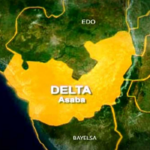Only 16 percent of smallholder farmers have access to mechanised equipment, and this is as a result of high costs, inadequate financing among other major factors
Chief Executive Officer, TracTrac Mechanisation Services Limited, Godson Ohuruogu, who made this disclosure while addressing journalists recently, lamented that despite the fact that agriculture is Nigeria’s economic backbone, 133 million people still live in multidimensional poverty, with most in rural areas relying on low-productivity and subsistence farming.
He stated: “TracTrac, an agric mechanisation service provider, is transforming farming for smallholder farmers in Nigeria, and bridging the gap between farmers and modern mechanisation. Through technology-driven solutions, financial accessibility, and strategic partnerships, the firm enhances farm productivity, promotes economic growth, and drives sustainable agricultural development.
According to him, only 16 percent of smallholder farmers have access to mechanised equipment, as a result of high costs, limited financing, and weak supply chain.
He said the “technology-driven company, founded in 2019, is changing this by deploying tractors and mechanisation services to over 135,000 farmers this year, increasing efficiency, productivity, and access to sustainable farming solutions while supporting over 3,900 young Mechanisation Service Providers (MSPs).”
Ohuruogu explained that the firm’s success is its TracTrac-Plus platform, a real-time digital booking system connecting farmers with MSPs, enabling real-time asset tracking, farm mapping, payment, demand aggregation and order fulfilment.
This technology, according to him, optimises service delivery by reducing delays, increasing mechanisation access, and ensuring efficient use of resources.
He said: “Our mission at TracTrac is to provide smallholder farmers with the tools, knowledge, and financial solutions they need to succeed in a modern agricultural landscape.
“By leveraging technology, strategic partnerships, and policy advocacy, we are not just delivering mechanisation services, but building a resilient ecosystem that empowers farmers for future generations.”
Ohuruogu stressed that the company is also promoting gender and youth inclusion in agriculture by addressing gender and youth gaps in mechanisation by ensuring that 50 percent of newly trained MSPs are women.
“Additionally, young entrepreneurs aged 18-35 have the resources to establish sustainable mechanisation businesses, creating new employment opportunities and fostering inclusive growth in the sector.”
Beyond service delivery, the firm collaborates with key stakeholders, including the National Centre for Agricultural Mechanisation (NCAM), Women in Mechanisation Association (WIMA), Nigeria Economic Summit Group, and other private sector players, to advocate for mechanisation policies. These efforts aim to create an enabling environment for investment, job creation, and long-term mechanisation sustainability.
He expressed optimism that with mechanisation driving food security, rural employment, and agricultural TracTrac remains committed to scaling its impact across the country and beyond.
ALSO READ TOP STORIES FROM NIGERIAN TRIBUNE
WATCH TOP VIDEOS FROM NIGERIAN TRIBUNE TV
- Let’s Talk About SELF-AWARENESS
- Is Your Confidence Mistaken for Pride? Let’s talk about it
- Is Etiquette About Perfection…Or Just Not Being Rude?
- Top Psychologist Reveal 3 Signs You’re Struggling With Imposter Syndrome
- Do You Pick Up Work-Related Calls at Midnight or Never? Let’s Talk About Boundaries







